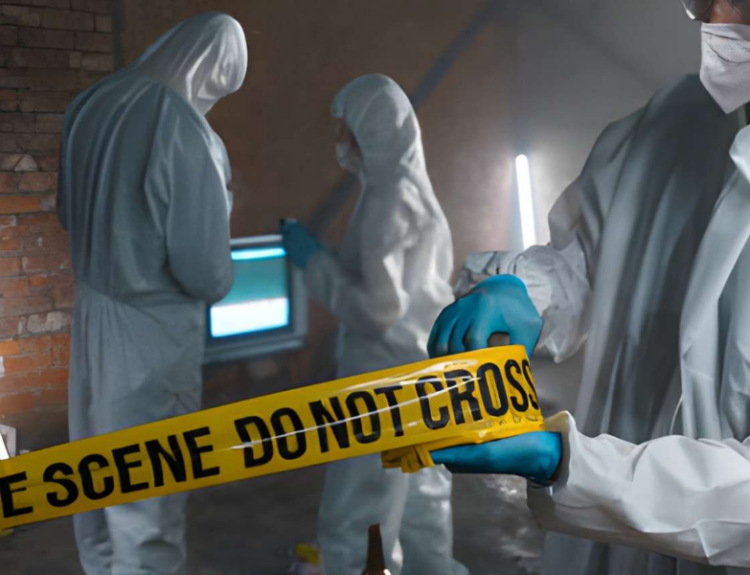In order to succeed as a criminal lawyer, you’ll need to choose the best law school and degree. The right program, with knowledgeable professors and a varied curriculum, can prepare you for a career in the ever-changing and complex field of information technology. This guide examines the top schools for criminal law and what makes them stand out so you can choose one that meets your requirements. Keep in mind that the way of teaching of every school differs a lot, and the overall tuition fees are different as well, so you have to be very thoughtful when making this decision.
Why Choose a Criminal Law Degree?
A criminal law practice deals with crimes and punishments, as the name implies. Besides analyzing crime and criminal behavior, it also examines the legal systems and procedures for punishing criminals. Criminal law differs from other branches of law, such as civil law, in that it emphasizes the state’s ability to punish those who have violated the law. Criminal law degrees open doors to a wide range of career opportunities. Working in this field involves a broad range of issues from assault and international fraud to housebreaking, bank robbery and organized crime. A criminal law degree may also lead to other careers, including police officers, probation officers, social workers, journalists, non-profit workers, and judges. If your job requires you to be knowledgeable about the legal implications of crimes committed, a degree in criminal law will provide you with the necessary background knowledge.
Undergraduate Criminal Law Schools
Check out some of the following best criminal law colleges around the nation offering on-campus as well as online degree programs:
Schools with on-campus criminal law programs:
- Southern New Hampshire University
Southern New Hampshire University offers a Bachelor of Science degree in Justice Studies, which goes beyond general education. This course examines the legal traditions of the country, examines the role of the courts, and examines the current state of the U.S. criminal justice system. A major in justice studies at SNHU is designed to provide you with a firm foundation in core competencies as well as specialized training in areas of interest. Your coursework will include studies in criminal justice, criminal law, corrections, legal and social science research, international criminal justice, and more.
- Program link: BS Justice Studies / Policing & Law Enforcement
- Acceptance rate: 96%
- Fees: $22,874
2. University of San Francisco
It does not matter if you plan on going into law enforcement or criminal defense, resolving disputes, or protecting civil liberties after graduation; USF’s criminal law and procedure curriculum is designed to prepare you for such a career. You will have the opportunity to take an active role in the Criminal and Juvenile Justice Law Clinic and develop the problem-solving, strategy-making, and advocacy skills that you will need in your future career. Criminal law courses at USF build on the fundamentals with a focus on both constitutional and statutory frameworks. During their two-week Advocacy Program, students are mentored by experienced lawyers and magistrates on trial and litigation techniques.
- Program link: BA in Criminal Law
- Acceptance rate: 71%
- Fees: $37,768
3. George Mason University
George Mason University offers a bachelor’s degree in Criminology, Law, and Society which focuses on the justice system and social, human, and moral issues surrounding the field. Students in this program learn about careers in law enforcement, corrections, courts, criminal investigation, juvenile justice, and private security. BS degrees offer students a more specialized approach, with more courses in criminology. As part of earning the BS degree, students gain work experience as criminal justice officers or complete a minor, second major, or dual degree in a relevant field.
- Program link: BS in Criminology, Law and Society
- Acceptance rate: 89%
- Fees: $18,589
Schools with online criminal law degree programs:
- Liberty University
An online criminal law college such as Liberty University offers a BS in Law and Policy degree as well as a Pre-Law degree. This degree can help you become a Juris Doctor (JD) or political career by preparing you to apply biblical principles to your work. You can positively impact society by participating in the legal system and upholding the rights of the innocent. The Liberty University pre-law bachelor’s degree offers academic excellence and cutting-edge technology in its degree programs since 1985. As part of Liberty University’s online bachelor’s degree program in law and policy, you will learn to combine faith with work to succeed academically and professionally.
- Program link: BS in Law & Policy
- Acceptance rate: 54%
- Fees: $68,230
2. Maryville University
The online bachelor’s degree in criminal justice/criminology at Maryville University will help you pursue your interest for justice and law in action. With their online courses in criminal psychology, criminal justice, criminology, and criminal law, you’ll be prepared for careers in them. With an online criminal justice degree from Maryville University, you can work in a variety of criminal justice fields. Their online criminal justice bachelor’s degree will help you succeed in any field, whether you’re just starting out, moving up, or branching out.
- Program link: BS in Criminal Justice/Criminology
- Acceptance rate: 94%
- Fees: $24,766
3. Georgia State University (GSU)
GSU offers an online Bachelor of Science in Criminal Justice with a concentration in Legal Studies. This concentration blends traditional criminal justice curriculum with a forward-thinking focus on digital criminology. Those who want more intensive exposure to law can take the Legal Studies concentration, which is designed for criminal justice majors preparing for law school. Furthermore, students may choose to pursue a minor in Digital Criminology in conjunction with their bachelor’s degree in criminal justice.
- Program link: BS in Criminal Justice/Legal Studies
- Acceptance rate: 52%
- Fees: $33,046
Graduate Criminal Law Schools
Check out some of the following graduate and master criminal law degrees offered by reputed schools:
- American University
The Master’s Degree in Justice, Law & Criminology offers a broad exposure to the field of criminal justice, criminological theories, and legal frameworks. A lot of the program focuses on research methods and critical thinking to tackle complex law and justice issues. During the course of the program, students will be equipped with the knowledge necessary to analyze crime, justice policies, and the effects they have on society. A graduate of this program can pursue a career in criminal justice, law enforcement, legal consulting, policy analysis, or academia. There are many job opportunities in the justice and law sectors, including government agencies, non-profits, and private companies.
- Program link: MS in Justice, Law and Criminology
- Acceptance rate: 47%
- Fees: $66,000
2. UNH Franklin Pierce School of Law
With its comprehensive curriculum, the Master of International Criminal Law & Justice program provides an in-depth understanding of the complexities of international law and the criminal justice system. This program focuses on a variety of topics, such as war crimes and human rights violations. Students gain a deeper understanding of global justice frameworks through practical exercises and case studies. After graduation, students can pursue careers in legal and human rights organizations, nongovernmental organizations (NGOs), as well as academia. Depending on their specialty, they may serve as legal analysts, policy advisors, or advocates.
- Program link: MS in Criminal Law and Justice
- Acceptance rate: 52%
- Fees: $34,800
3. Abraham Lincoln University
Graduates of the Master of Science in Criminal Justice program are prepared to contribute to the advancement of knowledge in the fields of crime, justice systems, and policymaking. During the course, you will be exposed to critical issues such as criminal behavior, legal frameworks, and law enforcement activities. You will be equipped with theoretical and practical foundations as part of the curriculum, ensuring that you are well-prepared to take on various challenges in the field. An eight-course core curriculum and two electives in law comprise this master’s degree program. You can choose electives from eight pre-defined emphases, such as business law, coaching, cybersecurity law, finance law, public safety management, organizational leadership or management, or you can add two electives of your choosing.
- Program link: MS in Criminal Justice
- Acceptance rate: 100%
- Fees: $19,800
4. Arizona State University
With a master’s degree in legal studies from Arizona State University, you can gain competency in law enforcement agencies as well as the rights of suspects and convicted individuals. You’ll also learn about the social goals of the criminal justice system and the differences between jurisdictions when it comes to laws. By earning this degree, you will be able to apply for a wide range of criminal justice roles. Nonetheless, professionals such as law enforcement officers, court clerks, and social workers may find this added knowledge valuable. In this course, you will discover how different agencies are in charge of enforcing different laws, as well as the rights of those suspected or convicted of crimes.
- Program link: Master in Legal Studies (MLS)
- Acceptance rate: 90%
- Fees: $31,200
5. University of Notre Dame
The University of Notre Dame’s Criminal Law Program prepares students for important work in protecting the vulnerable and regulating society. A variety of courses and clinical opportunities are available at Notre Dame to students wishing to pursue careers in criminal justice. These courses are designed to develop the knowledge and abilities required to be successful as prosecutors and defendants. Among these offerings are lectures and seminars on substantive criminal law and sentencing law, criminal procedure and constitutional remedies, litigation, and social justice.
- Program link: MS in Criminal Law
- Acceptance rate: 18%
- Fees: $33,717
What to do After Criminal Law School Graduation?
Graduating from criminal law school is a significant milestone, and there are several career paths and further steps you can take depending on your interests, goals, and qualifications. To become a criminal lawyer, you must first take a bar exam. There are different procedures and requirements in each state for admitting lawyers and administering the bar exam. You should check the requirements for your desired state’s bar before applying. There are a few states that have developed their own bar exams, most of which use the Uniform Bar Exam (UBE). You may be able to transfer your UBE score to another state if you pass the UBE. A former criminal lawyer who has worked in a courtroom or for a social service agency can get a competitive position as an aspiring legislator. Other than that here are some ways to gain work experience:
Finding internships
Internships with public defenders offer a great opportunity to gain experience while building your reputation. In most cases, you will be able to work closely with a public defender and may even accompany them to court. It is also possible to gain experience as a lawyer by interning for a judge who handles criminal matters.
Assisting a criminal defense attorney
Over the summers, you may have the opportunity to work as an associate or clerk for an attorney. The career center at your school will notify you when available positions are advertised by established firms.
Finding clinical opportunities
Law school clinics are an excellent way to gain experience in criminal defense. You can receive responsibilities for providing real legal assistance to criminal justice system clients under the guidance of a clinical faculty member. It is also possible for you to interview clients and witnesses or arrange for jail releases.
Conclusion
The study of criminal law focuses on the legal framework and processes surrounding crimes, including their definitions, investigations, prosecutions, and punishments. Upon graduating from this program, you can pursue a number of careers in criminal justice. Lawyers who specialize in criminal law handle a variety of crimes, such as sex crimes, domestic violence offences, fraud, embezzlement, and drug offences.
We hope you found this guide on criminal law degree helpful and it can help you choose a suitable program that meets your requirements. Keep in mind there are plenty of other colleges and schools that offer criminal law degrees that you can search and find one suited to your needs.

Budget-Friendly Criminal Law Schools in Texas
Guide to Criminal Law Degree Programs








